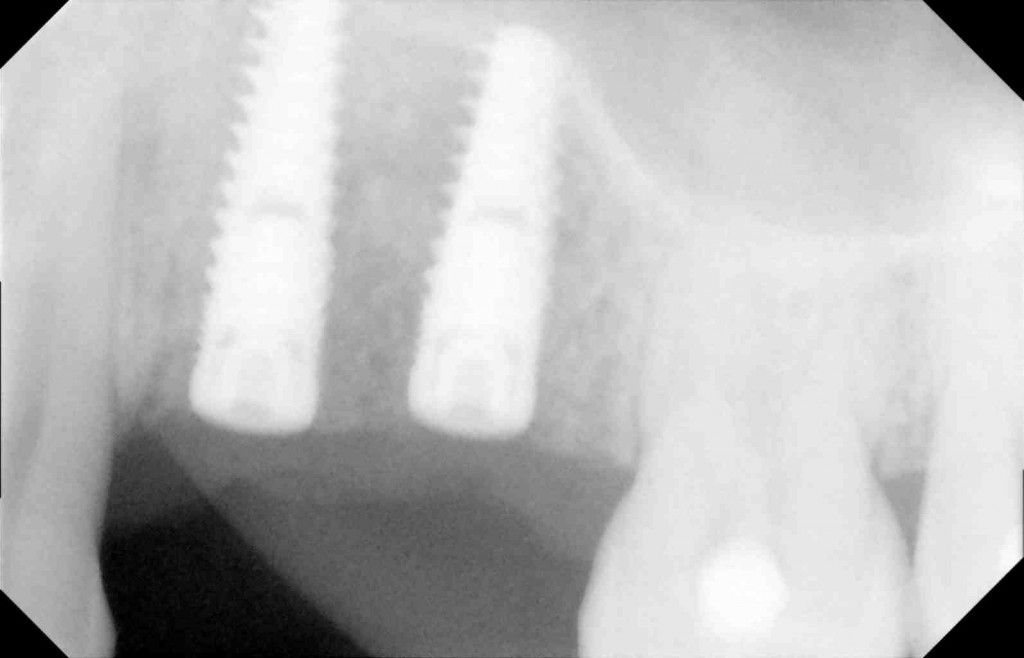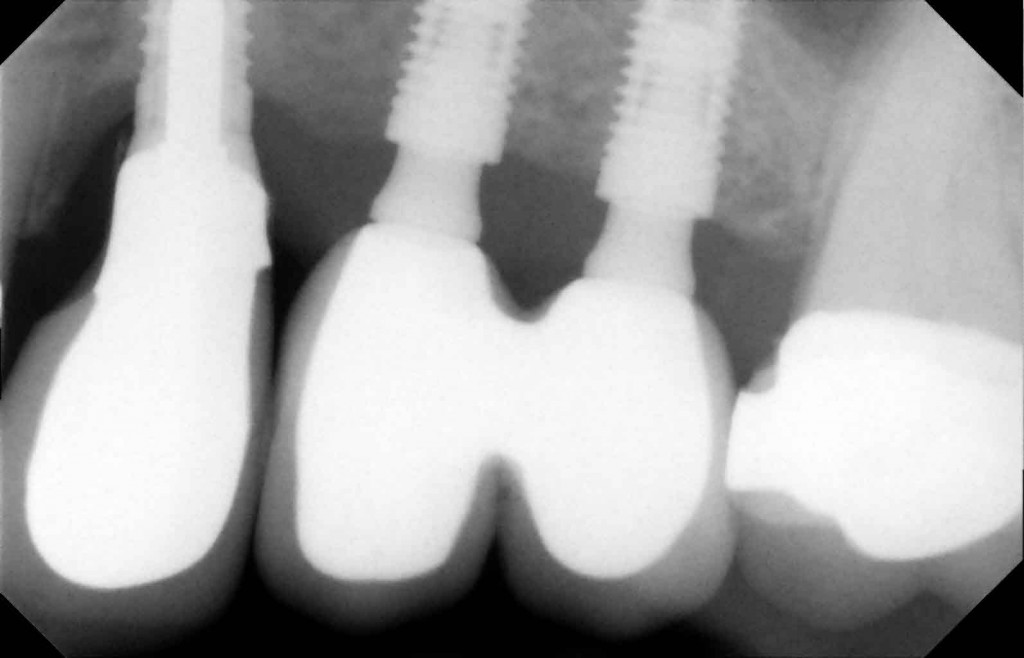
Mini dental implants are smaller/thinner implants than conventional dental implants (hence the word mini). Dental implants are small titanium screws that are inserted into the bone to replace a single missing tooth or multiple missing teeth. Dental implants offer an improved solution for replacing missing teeth when compared to removable dentures or fixed bridges.
Beyond replacing a single tooth, dental implants can also provide better results for replacing a full arch. This includes solutions like an implant supported bridges or implant overdentures that are supported by dental implants. While these treatments can provide better results than many of the alternatives, there may be some patients who are not good candidates for traditional dental implant procedures.
Some dentists use mini dental implants as an alternative to traditional dental implants. With these smaller implants, the benefits of dental implant treatment are now open to even more patients.
What are Mini Dental Implants?

Mini dental implants are similar to regular dental implants. The key differences are in size, design and the specific ways in which they are used.
Regular platform implants are those that are 3.2-6 mm in diameter. With mini dental implants, you have implants that go from 1.8-3.2mm
Most mini dental implants are designed for the purpose of securing a set of lower dentures. Just like a regular platform implant, they have a post that is placed in the jaw. At the head of the mini implant, you will find a small attachment usually the shape of a ‘ball’. The ‘ball’ is designed to fit into another attachment that is embedded into a removable denture.
With a mini dental implant supported overdenture, patients get replacement teeth/removable dentures that are more secure and more comfortable to wear.
How Long Does Treatment Take?

Mini dental implants require a less invasive procedure and less time to heal. The implants are usually placed with local anaesthetic or conscious sedation in a procedure that takes between one to two hours. In most cases, the morevable dentures can be stabilised immediately on the mini implants following the procedure. This means that the patient will leave with a secure set of lower dentures after the procedure is completed.
Caring for Mini Dental Implants
Just like regular dental implants, mini dental implants will require some care. You will need to clean around the implants at least twice a day (once in the morning and once at night), but it is recommended that you try to clean the implants after every meal. Along with that, you will also need to remove the dentures to clean them and let them soak at night.
Your implant dentist should provide instructions for post-op care and the long-term maintenance of your implants and overdenture. Following the care instructions of your implant dentist is important. A lack of proper care can lead to a variety of oral health issues and it can also increase the chance of complications with one or more of the implants.
Advantages of Mini Dental Implants
- Good for patients who lack sufficient bone density to support regular implants
- Provides stability to dentures
- Better function from removable dentures
- More comfortable than unsupported removable dentures
- Patients can be more confident with their dentures
- The procedure is generally considered less complex than with conventional implants
- Reduced healing time
- Helps to preserve existing bone density
- Immediate loading capabilities
- Existing dentures can often be fitted to work with the implants- which means a reduction in cost. In some cases a new removable denture will need to be remade from scratch to fit onto the mini implants
Disadvantages of Mini Dental Implants
While mini dental implants are beneficial for some patients, they are only good for a narrow range of treatment options. Due to the limitations of these smaller implants, dentists will generally try to use traditional implants when possible. The following are some of the disadvantages of mini dental implants:
- Mini dental implants are not as stable as traditional implants
- Not good for patients who have issues with grinding their teeth
- Only good for a limited range of treatment options
- Some patients might not have enough bone to support mini or traditional implants
- More prone to implant failure
- More prone to dental impant fracture, due to the narrow shape mini implants will flex/bend more under pressure when compared to conventional dental implants.
Brighton Implant Clinic offers a wide range of dental implant treatments. This includes the use of mini dental implants to stabilise a set of lower dentures. Contact our team to schedule a consultation with one of our dentists. We can perform an examination and help you determine if mini dental implants offer the best solution to replace your missing teeth.

